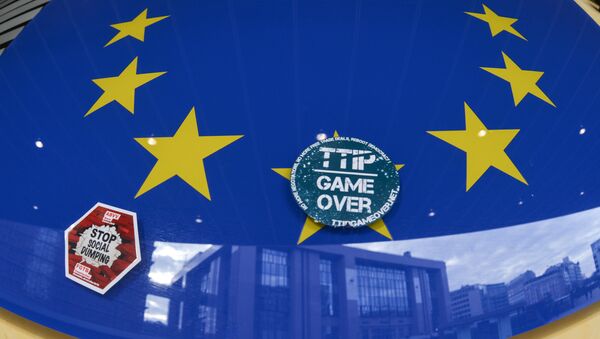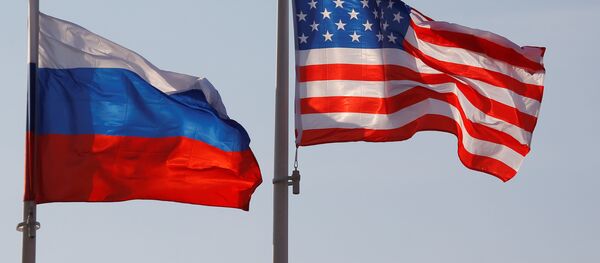First put in place in August 2014, the counter-sanctions ban the import of certain kinds of agricultural products, raw materials and foodstuffs from the EU, US and a handful of their allies.
These countries had imposed sanctions against Russia in March 2014 following Crimea's decision to reunite with Russia in the aftermath of the Euromaidan coup d'etat in Kiev.
In tandem with the counter-sanctions, the Russian government has also pursued a policy of import substitution which encourages the development of key sectors of the Russian economy such as agriculture, manufacturing and tourism.
Earlier this month, the US Senate approved new sanctions against Russia in the Countering Iran's Destabilizing Activities Act. They will soon be considered by the House of Representatives and President Donald Trump.
The proposed US sanctions target Europe's energy supply from Russia, pledging to "continue to oppose" the planned Nord Stream 2 pipeline and "prioritize the export of United States energy resources."
They have aroused ire in European countries including Germany, since the sanctions threaten European companies participating in the project to deliver 55 billion cubic meters of gas to European consumers.
The EU's economic sanctions limit access to EU primary and secondary capital markets for several Russian banks and major energy and defense companies. They also curtail access to certain sensitive technologies and services that can be used for oil production and exploration.
Political scientist Vladimir Kireev told Radio Sputnik that Russia's counter sanctions are a measured response to the US and EU.
"Countermeasures are the rule in international relations. These are measures which the Russian leadership was forced to take. In signing the countermeasures, the Russian President clearly doesn't want to escalate the conflict with the EU or the US," Kireev said.
"Heads of state have given a lot of direct and indirect signals about the need to lower the level of aggression, which could lead to extremely negative consequences."
"After all, there is a threat of war, but even aside from this apocalyptic scenario, our countries are losing great economic opportunities, the world is becoming less safe, and we can't solve a large number of issues because it's absolutely impossible to solve them without Russia's participation."
"However, practically, the European countries and the United States are on a long-term trajectory of deteriorating relations with Russia and they see the need to increase the level of conflict," Kireev said.





